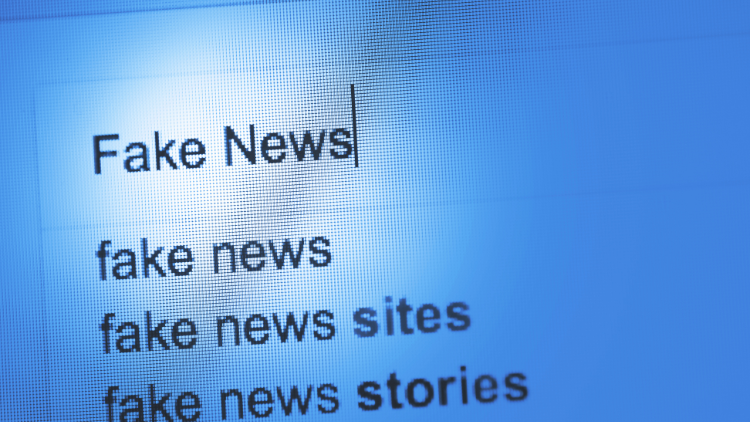DISINFORMATION
Defending Freedom and Democracy: is our battle against disinformation lost?

What does Mexico, Ecuador and the Philippines have in common? During the last delegation program on “Defending Freedom and Democracy: A Multi Stakeholder Approach in Deconstructing the Disinformation Ecosystem” in Brussels, we discovered three aspects these countries share: first, local journalists face greater risks and danger; second, influencers play a big role in shaping public opinion, and third; the State or the president is the main source of spreading disinformation.
During the visiting program, most of the organizations we met defined disinformation as manipulative content, false context, imposter content or fabricated content with the only goal to manipulate. Disinformation has always existed; nevertheless, Big Tech companies and the way their algorithms work has led to an exponential growth of the phenomena.
In 2018, the study The spread of True and False News Online from the Massachusetts Institute of Technology (MIT), concluded that falsehood is diffused significantly faster, farther, deeper, and more broadly than the truth in all categories of information, and in many cases by an order of magnitude. Disinformation, as manipulative content, uses emotions such as hate and anger as drivers. Many journalists, such as Nobel Prize winner Maria Ressa from the Philippines, claim that the way algorithms work through the spread of disinformation has led to authoritarian leaders to power, even if they were elected within democratic free processes.
The speed of disinformation spread has an impact in the real world. Examples of the magnitude of disinformation spread are the January 6 of 2021, United States Capitol, and January 8 of 2023, attacks in Brasilia. Emotions are the gateway to irrational behavior. According to Ressa, the reason why we should care more about disinformation is that it can be manipulated during elections.
Thus, would it be possible to consider free elections if citizens have been manipulated? Ressa claims Big Tech companies have contributed to radicalization and polarization, leading to an environment of distrust. In democracies different political views, belief systems, and perspectives are needed, but prioritizing decision-making processes based on facts has yet to be achieved.
Many claim polarization is healthy and that it is even a sign of freedom. The problem now is that through the design of algorithms, polarization is not based on rational decisions based on facts, but rather on manipulation. There is no general agreement on facts and what is the actual truth. Everyone seeks their own truth.
If there is something we discovered during this program, it’s that it is difficult to define or impose truths when everyone is different and is free to believe what considers matches their principles and values. Nevertheless, facts should play a key role to shape those beliefs because without trust in facts it is impossible to shape the public space that defines debates for open democracies. Thus, countering disinformation requires a collaborative multi-stakeholder effort.
In our meetings with different organizations within the European Parliament, Disinfo Lab, and the International Republican Institute, we discovered how the European Union (EU) has since 2015 increased its capacity to protect democratic processes and the privacy of its citizens through actions against disinformation, foreign information manipulation and interference (FIMI). One of the largest campaigns is the EUvsDisinfo site of the European External Action Service responding to disinformation campaigns affecting EU members by informing citizens about media manipulation.
The fight against disinformation is not lost if we consider multi stakeholder efforts and creative ways to spread content based on facts that appeals to audiences, especially the young who will be the future of democracies. The right to ask questions belongs to journalists, and this program left us with three reflections we want to share:
- As a multi stakeholder effort, who should fight disinformation? Governments? Media? Citizens? Social Media platforms? If we stand for freedom of individuals, shouldn’t we as citizens claim free press, and the truth based on facts for all?
- Disinformation has led to a complex ecosystem that requires information monitoring agencies, fact checking, and debunking can be very time consuming. Many experts question the future of fact checking: when one story is debunked, there are already 10 more to analyze. It is evident that the strategy must change. Is fact checking still something journalists should be pursuing as a strategy or invest in creative content sharing based on evidence and facts? It is impossible to avoid disinformation, but it is possible to create a communication framework that responds to these crises.
- Not all legislation should be adopted everywhere. Some efforts focus heavily on data privacy and regulation of content, which in other regions with dictatorship backgrounds could damage freedom of speech and press. Considering our historical background before adopting regulations that damages our rights, should be a priority.
Disinformation is the plague of modernity, how to defend democracy and freedom when information manipulation permeates? Experts from Ecuador, Mexico and the Philippines give us their answers and strategies.
© FNF Europe